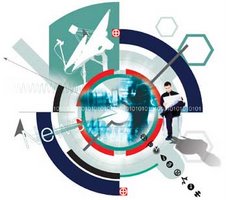Tehran - Riots broke out in Iran in the early hours of Wednesday and some petrol stations were set on fire in the capital Tehran following the government's decision to ration petrol.
According to local press reports, at least five petrol stations in Tehran were set on fire in protest against the rationing. Some banks and supermarkets were also reportedly robbed.
Witnesses said the people also shouted slogans against President Mahmoud Ahmadinejad who is considered as the initiator of the petrol rationing.
The Iranian parliament swiftly reacted to the riots and summoned the oil and interior ministers to investigate the incidents in a secret session.
The oil ministry announced via state-television that necessary grounds would be prepared to prevent any petrol problems for the people. The ministry's promises were, however, based on establishing new oil refineries in the coming years.
As of Wednesday, Iran, one of the world's largest oil producers, started rationing petrol nationwide.
The oil ministry said in a statement that each private car will get 100 litres per month at 0.108 dollars per litre for normal and 0.151 dollars for super petrol.
The announcement caused huge chaos on Tehran's streets in the late night hours of Tuesday with cars rushing to petrol stations to fill their tanks before the start of the rationing.
Anything above the ration quota was scheduled to be sold at 0.30 to 0.40 dollars per litre or at a floating rate but no final decision has yet been announced in this regard.
The incidents confirmed the government's fears that the move would dent Ahmadinejad's popularity before parliamentary elections in March next year, besides increasing inflation.
Although Iran as a leading OPEC member has a daily oil production of 4.2 million barrels, the Islamic state still spends 5-8 billion dollars annually on petrol imports due to lack of refineries and a preference for oil export.
The first phase of petrol rationing was carried out earlier this month for governmental cars which have a quota of 300 litres per month.
Petrol is only supplied through the so-called 'smart card' or petrol coupon, an initiative by Ahmadinejad to stop lavish fuel consumption which currently stands at an estimated 73 million litres daily.
With the initiative Ahmadinejad hopes not only to fill the huge gap in Iran's budget but also to tackle related problems such as traffic jams and pollution in big cities.
WidgetBucks - Trend Watch - WidgetBucks.com


